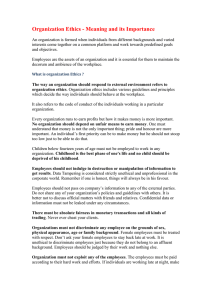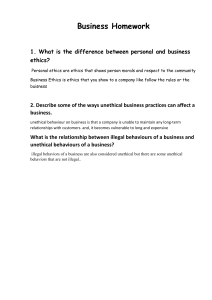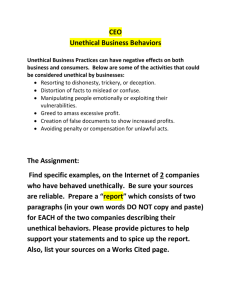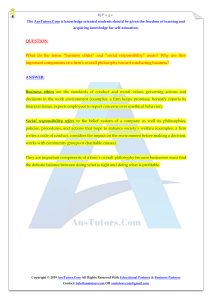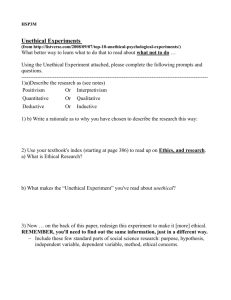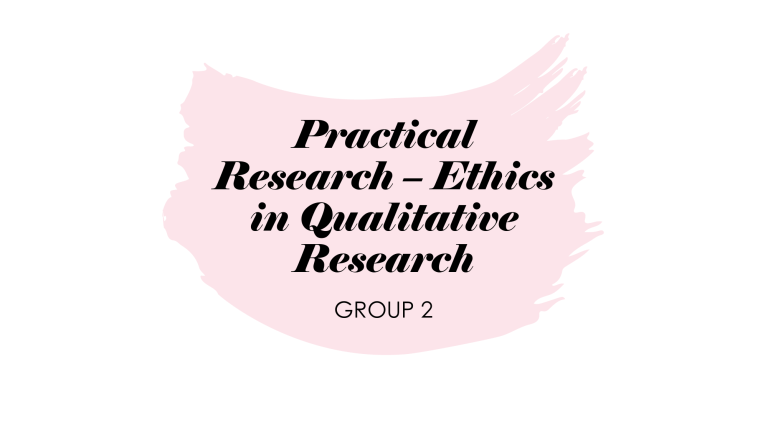
Practical Research – Ethics in Qualitative Research GROUP 2 Guide Questions: 1. Based on the article, how will you define ethics in research? 2. 2. Are the Tuskegee syphilis study and diethylstilbesterol study on pregnant women unethical? Why? 3. 3. if you were part of the research teams who conducted the research studies, what will you do to correct the unethical aspect of the experiments? 1. Based on the article, how will you define ethics in research? - Ethics in research pertains to doing good and avoiding harm. Harm can be prevented or reduced through the application of appropriate ethical principles. Thus, the protection of human subjects or participants in any research study is imperative. - Ethics in research conveys Honesty: Honestly reporting the data results, methods and procedures, and publication status. At its simplest, ethics is a system of moral principles. They affect how people make decisions and lead their lives. Ethics is concerned with what is good for individuals and society and is also described as moral philosophy. 2. Are the Tuskegee syphilis study and diethylstilbesterol study on pregnant women unethical? Why? • Yes, the Tuskegee syphilis study and diethylstilbestrol study on pregnant women were both unethical mainly because there is no evidence that researchers obtained from participants and it is illegal and inhuman to conduct medical experiments on humans without any informed consent and agreement especially when participants were not offered any available treatments. 3. if you were part of the research teams who conducted the research studies, what will you do to correct the unethical aspect of the experiments? - If I were part of the research team who conducted the research studies, for me, I think it would be very difficult to correct the said experiments because unethical experiments still hold some validity, because unethical research means no validity. Depending on how unethical the research is. But, at the same time I think we can still help the researchers correct unethical aspect of their experiments but only as a concern researcher in the same field. And first that is by identifying what experiments they are talking about, where they were conducted, and who conducted them. Then we have to provide evidence that some of the actions the investigators took while conducting the experiments were unethical. And finally, contact the investigators of those studies, ask them about what we consider to be unethical aspects of their experiments, and see what they have to say about it.
